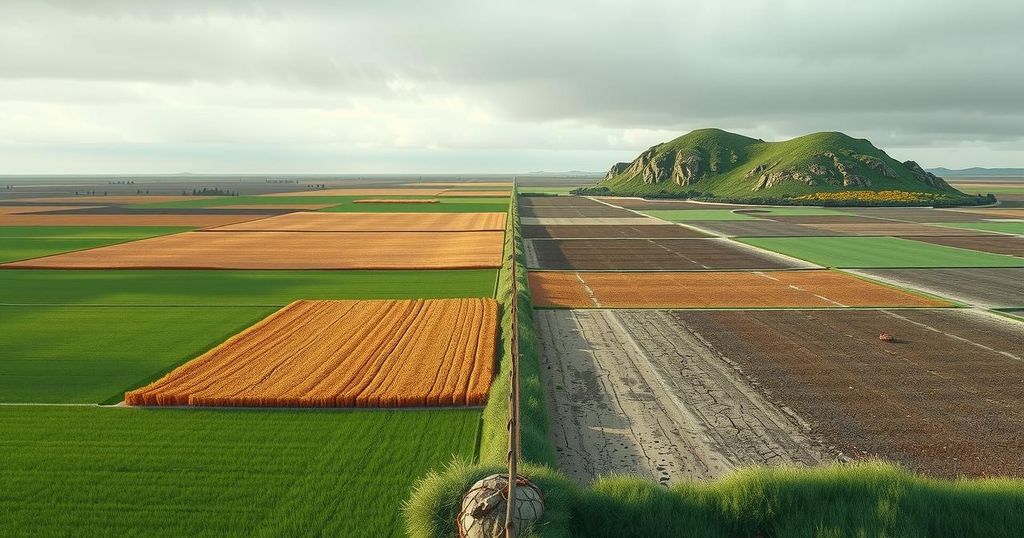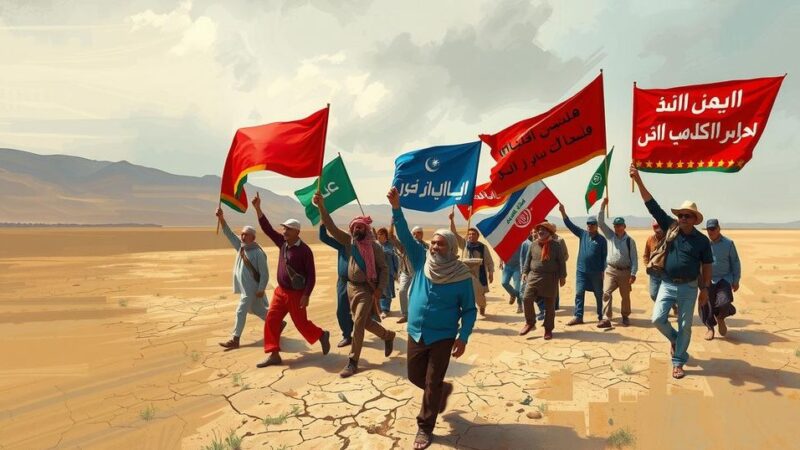South Africa’s land inequality originates from apartheid and discriminatory policies limiting Black land ownership. Current legislation aims to address these issues but has sparked controversy, particularly from figures like Trump and Musk, who allege racial discrimination against White farmers. Critics emphasize existing disparities in wealth, arguing that portrayals of White victimhood obscure the larger issues of inequality. Recent U.S. aid cuts due to these policies have raised concerns about health program funding and economic stability.
South Africa’s history includes deeply rooted land inequality, exacerbated by apartheid, which formally ended in the 1990s. This systemic discrimination forcefully displaced non-White South Africans for the benefit of White landowners. Legislation known as the Natives Land Act of 1913 restricted land ownership for Black individuals to a mere 7%, revised later to 13%. Currently, Black residents, who constitute 81% of the 63 million population, own only 4% of private land per a 2017 government audit.
In response to this historical injustice, South African government efforts include the recent expropriation act signed by President Cyril Ramaphosa. This legislation aims to enable the government to reclaim and redistribute land, with provisions for compensation in cases deemed just and equitable. However, no actual land seizures have occurred under this act thus far, reflecting a careful approach to potential conflicts.
The Act has stirred racial tensions, attracting attention from international figures like U.S. President Donald Trump and billionaire Elon Musk. They claim it promotes discrimination against White farmers. Musk criticized the government for its ownership laws, labeling them as overtly racist, prompting backlash from some White South Africans who argue that such portrayals misrepresent the realities of land inequality.
Critics, such as Bloemfontein resident David Van Wyk, argue that the narrative of White victimhood is misleading, emphasizing the significant income disparities that exist. For instance, he noted that White South Africans generally earn 10 to 20 times more than the majority of Black individuals. The expropriation effort is seen by some as a crucial step towards rectifying these historic injustices.
While some support the Act, others caution that its implementation may be misguided. Attorney Henk Smith described the approach as clumsy, advocating for just and equitable compensation to be integral in any expropriated land scenario, with certain exceptions. Concerns have also arisen regarding Trump’s recent executive order that cut $440 million in aid to South Africa, which is believed to put vital health programs at risk.
The executive order, linked to South Africa’s land policies and broader foreign relations, has raised fears of further sanctions. Critically, observers warn that South Africa may lose eligibility for the African Growth and Opportunities Act, potentially harming key sectors like agriculture and auto manufacturing. Such economic consequences could deepen the challenges faced by the nation.
Officials from South Africa’s Department of International Affairs have criticized claims of widespread land seizures as disinformation, while organizations like AgriSA emphasize that the act has not resulted in forced land grabs. They insist that the legislation’s intent has been miscommunicated, adversely affecting the agricultural industry’s investment climate. As political tensions mount, groups like the Solidarity Movement have voiced concerns but refrain from claiming that large-scale land seizures are occurring. Nevertheless, right-wing groups like AfriForum maintain that some sectors face unfair treatment, perpetuating the narrative of victimization, despite evidence to the contrary regarding safety and violent crime norms in South Africa.
The ongoing discourse surrounding land ownership and expropriation in South Africa remains complex and contentious. While attempts to rectify historical injustices through proposed legislation have been initiated, significant misunderstandings persist at both domestic and international levels. The influence of prominent political figures abroad amplifies fears and misrepresentations of the situation, complicating the nation’s efforts toward meaningful reform. The need for constructive dialogue and an unequivocal understanding of the facts is paramount in navigating these racial and economic challenges.
Original Source: www.wral.com






